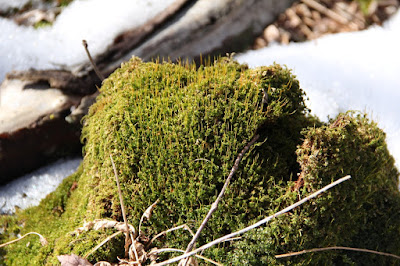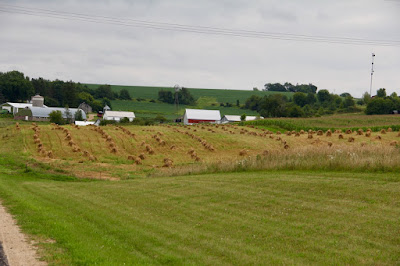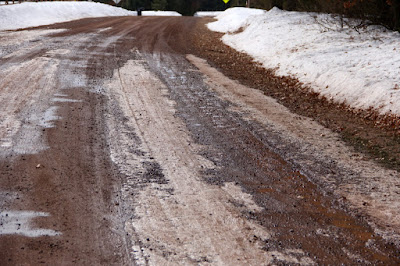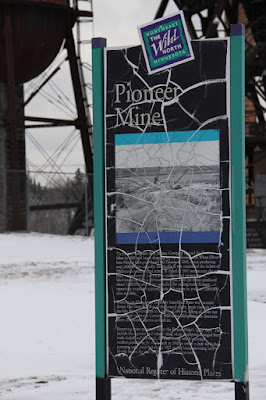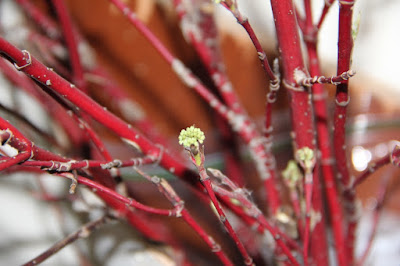 |
| time for red osier dogwood bouquets
Photo by J. Harrington
|
As to some past news, the Irish soda bread came out nice and tasty and crusty. Thanks for asking. We'll bake another loaf tomorrow or Monday, probably Monday, so we can more easily bake some scones tomorrow for breakfast. Can you tell we're coming out of our Winter shell? But we have to wait patiently here in the North Country for Spring leaf out to creep closer. It's reached all through the maroonish color on the map. Another 6 to 8 weeks for us, perhaps?
 |
| source: USA National Phenology Network, www.usanpn.org |
While we wait for leaf out, we can welcome returning waterfowl. Yesterday we saw a couple of small groups of swans on a St. Croix River backwater across from Osceola. We suspect they may be a rogue offshoot of the flock that overwinters near Hudson. The Osceola gang may be the source of the pair of swans we saw near Comfort Lake on Thursday. Unless, of course, a number of swans are returning early to the North Country. Maybe they know something about an early Spring while we can but hope for such at the moment.
Cold Spring
The last few gray sheets of snow are gone,winter’s scraps and leavings loweredto a common level. A sudden joltof weather pushed us outside, and nowthis larger world once again belongs to us.I stand at the edge of it, beside the house,listening to the stream we haven’t heardsince fall, and I imagine one day thinkingback to this hour and blaming myselffor my worries, my foolishness, today’s choiceshaving become the accomplishedfacts of change, acceptedor forgotten. The woods are a mangleof lines, yet delicate, yet precise,when I take the time to look closely.If I’m not happy it must be my own fault.At the edge of the lawn my wifebends down to uncover a flower, then another.The first splurge of crocuses.And for a moment the sweep and shudderof the wind seems indistinguishablefrom the steady furl of waterjust beyond her.
********************************************
Thanks for visiting. Come again when you can.
Please be kind to each other while you can.



